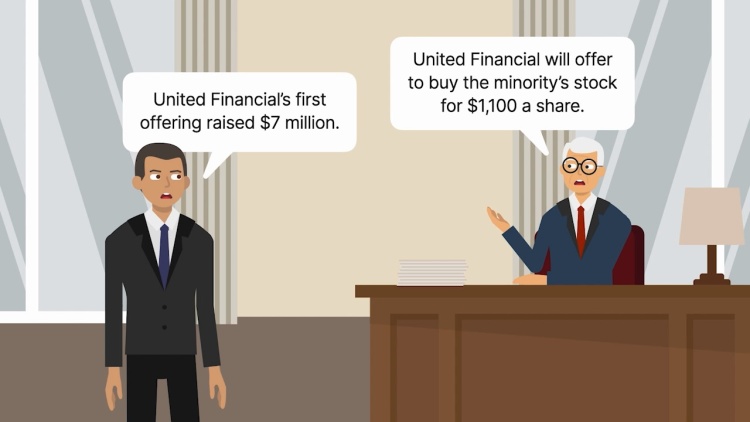Jones v. H. F. Ahmanson Co.
California Supreme Court
460 P.2d 464 (1969)

- Written by Sean Carroll, JD
Facts
H. F. Ahmanson Company and three other corporations (defendants) were the controlling stockholders of the United Savings and Loan Association of California (association). In the late 1950s, there was a thriving public market for shares of savings and loan associations. However, there was no public market for association stock due to its high book value, a lack of public information, and the fact that the association was closely held. In an attempt to take advantage of the bull market, the defendants created the United Financial Corporation of California (defendant) as a holding company for association stock. The defendants then exchanged their association shares for United Financial shares before offering United Financial shares to the public. The result of this procedure was a vibrant public market for United Financial shares, and United Financial holding 85 percent of the association’s stock. United Financial did not offer June Jones and other minority association stockholders (plaintiffs) an opportunity to exchange their association stock for United Financial stock before it went public. The public offering of the more marketable and less expensive United Financial shares ensured that there would be no chance that association stock would ever become marketable. Jones brought suit, alleging that the defendants breached their fiduciary duties as the controlling stockholders of the association.
Rule of Law
Issue
Holding and Reasoning (Traynor, J.)
What to do next…
Here's why 907,000 law students have relied on our case briefs:
- Written by law professors and practitioners, not other law students. 47,100 briefs, keyed to 996 casebooks. Top-notch customer support.
- The right amount of information, includes the facts, issues, rule of law, holding and reasoning, and any concurrences and dissents.
- Access in your classes, works on your mobile and tablet. Massive library of related video lessons and high quality multiple-choice questions.
- Easy to use, uniform format for every case brief. Written in plain English, not in legalese. Our briefs summarize and simplify; they don’t just repeat the court’s language.





